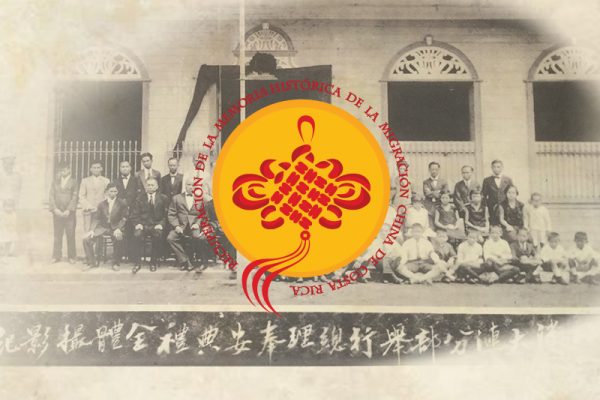Project of Recovery of the Historical Memory of Chinese Immigrants in Costa Rica PREMEHCHI for its acronym in Spanish

Project of Recovery of the Historical Memory of Chinese Immigrants in Costa Rica PREMEHCHI for its acronym in Spanish
Just like many countries in the world today, Costa Rica is a nation of great cultural and ethnic diversity. A plurality that has been legitimized in the Political Constitution. Immigrants from different latitudes and ethnic backgrounds arrived to the country shortly after it became a sovereign state and contributed to expand the multi-ethnic and cultural horizon of a colonial society largely based on indigenous, Spanish and African roots. In the same way, said immigrants from very different ontological positions and walks of life participated in the cultural, political and economic development of the country.
Chinese immigrants who settled in Costa Rica since the mid-nineteenth century are one of many important ethnic groups who became an inherent part of modern-day Costa Rican society. Chinese of varied origins settled and were integrated to the rest of the Costa Rican community during different times. In this way, the present project has the main aim of collecting, classifying and analyzing all the existing material in the country about overseas Chinese in Costa Rica from the 19th century to the present day.
Main objective
Reconstruct the histories that arise from the Chinese migrations to Costa Rica in their social, political, economic, philosophical, cultural and visual contexts.
Specific objectives
1. Build up a database of primary and secondary sources on Chinese migrations to Costa Rica from the 19th century to the present.
2. Plot maps of the immigrants’ place of origin, businesses, and family relationships in order to restore the identities they lost when they adopted Western names.
3. Create an archive of old photographs depicting the group's sojourn in this country.
4. Analyze the impact of their economic pursuits on Costa Rican society.
5. Examine the role of the social networks of the overseas Chinese in Costa Rica.
6. Study the interactions between them and other ethnic groups that conform the Costa Rican identity
7. Find out the incidence of biopower measures on the population of Chinese immigrants.
8. Establish possible links among Chinese overseas communities in Costa Rica and those in other countries in America.
The proposal
The four main branches of this project, which has had the assistance of important cultural institutions such as the National Library, the Archdiocesan Archive and the National Archive, educational institutions such as Université de Bordeaux, University of Costa Rica and the Distance State University in Costa Rica, and Chinese associations and members of the Chinese community of Costa Rica, are:
1) The Chinese, oral history and genealogies
This aspect aims to record possible oral testimonies of some members of the Chinese community. In particular, we will try to collect those testimonies from the oldest members of the community throughout the country. Several descendants of different immigrants have been interviewed to reconstruct the histories and genealogical lines of different Chinese-Costa Rican families up to the present day.
2) The Chinese and their material heritage
In order to reconstruct the past of the Chinese community we have tried to collect or catalog an array of documents and objects kept by members of the Chinese community or that attest to the Chinese presence in Costa Rica: personal letters, diaries, postcards, genealogies, photographs, passports, records, etc.
Eventually these documents (or copies) could be transferred to the Confucius Institute of the University of Costa Rica or to a national official cultural institution in order to preserve them and eventually create a permanent collection or thematic museum (real or virtual) in the hope of presenting the history of the Chinese immigrants in the country as one of the many stories that make up the national grand narrative.
3) The Chinese as actors in the national development
The third branch of this proposal aims at unearthing sources about early Chinese immigration from personal archives and State archives and libraries in order to study the role of the Chinese in the development of the Costa Rican nation (their issues, their social insertion processes, their integration to the local communities, and their participation in economic, cultural and political life among others).
In this line, archival files, journals, and newspapers have been examined in order to write articles, booklets, and books. The purpose is to promote the study of the overseas Chinese community among students of history, anthropology or related fields and the production of more such works.
4) The Chinese as continental actors
Aware of the relevant Chinese presence in the different countries of the American continent, the team is working to establish links with other research groups and communities of Chinese origin in the rest of Latin America and the Caribbean, the United States and Canada with the aim of identifying possible historical links among them and pave the way for future collaborations.